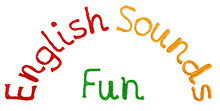The overlap between SpLDs (and other disabilities) and language learning is a field that is becoming more widely researched and described. Here are some useful resources both in print and on-line.
Publications from ELT well
Kormos, J. & Smith, A.M. (2012) Teaching Languages to Students with Specific Learning Differences (MM Textbooks). Clevedon Bristol; Multilingual Matters.
Smith, A.M. (2013) Developing “Cognitive Assessments for Multilingual Learners”. In Tsagari, D. and Spanoudis, G. (Eds.) (2013)Assessing L2 Students with Learning and Other Disabilities (Linguistics). Chapter 8. Newcastle; Cambridge Scholars Publishing.
Smith, A.M. (2010) ‘Adapting Assessment Procedures for learners with different first languages’ PATOSS Bulletin 23(1): 37-42.
Smith, A.M. (2010) ‘Exam Access Arrangements for ESOL students’ Language Issues 21(1):53-57.
Smith, A.M. (2008) ‘TEFL Training for Inclusive Classrooms’ Paper presented at the IATEFL Research Special Interest Group Conference: Exploring English Language Learning and Teaching Konin, Poland.
Smith, A.M. (2008) ‘Teachers’ and trainers’ perceptions of inclusive education within TEFL certificate courses in Britain’ in Language Learners with Special Needs: An International Perspective (Second Language Acquisition) J. Kormos & E. Kontra (Eds.) Clevedon ; Multilingual Matters.
Smith, A.M (2006) Inclusion in English Language Teacher Training and Education (PDF 1.3mb) [new window]. Unpublished PhD Thesis; Lancaster University
Smith, A.M. (2006) ”Learning difficulties’ or teaching challenges?’ in IATEFL 2006 Harrogate Conference Selections B. Beaven (Ed.) Canterbury; IATEFL.
Smith, A. M. (2005) ‘The ABC of TEFL: Special Educational Needs (SEN).’ IATEFL Voices 186: 13.
Other Publications
Bogdashina, O. (2004) Communication Issues in Autism and Asperger Syndrome. London: Jessica Kingsley Publishers.
Goulandris, N. (Ed.) (2003) Dyslexia in different languages: cross-linguistic comparisons. London; Whurr publishers.
Grant, D. (2010) That’s the Way I Think: Dyslexia, dyspraxia and ADHD explained (2nd Edition). Abingdon: Routledge.
Ingstad, B. and Whyte, S. (Eds.) (1995) Disability and Culture. Berkeley; University of California Press.
Kormos, J. and Kontra, E. H. (2008) Language learners with special needs : an international perspective. Bristol; Multilingual Matters.
Nijakowska, J. (2010). Dyslexia in the Foreign Language Classroom (Second Language Acquisition) Clevedon: Multilingual Matters.
Schneider, E. & Crombie, M. (2003) Dyslexia and Foreign Language Learning London; David Fulton Publishers.
Smythe, I., Everatt, J. and Salter, R. (2004) International Book of Dyslexia. Chichester; John Wiley and Sons, Ltd.
Sunderland, H., Klein, C., Savinson R. & Partridge, T. (1997) Dyslexia and the Bilingual Learner. London; Language & Literacy Unit
Swan, M. and Smith, B. (Eds) (2001) Learner English: a teacher’s guide to interference and other problems. Cambridge: CUP.
Links to organisations offering information, training and resources in this area:
If you are interested in learning languages (including English) and you’re looking for a tutor, Lancaster Languages offer a wide range of courses for groups and individuals.
For specialist information relating to teaching English to children in schools (EAL) a new organisation called Language Literacy and Learning is offering a range of resources and advice.
If you are an English language teacher looking for more information about how dyslexia affects language learning and how you can include your dyslexic learners, please see the training and CPD page for information about half-day and whole-day ELT wellworkshops coming up, or how to arrange your own bespoke CPD event.
 The Ruth Hayman Trust is a charity which awards small grants to support the education and training of adults who have come to settle in the UK, speak English as a second or other language and have difficulty paying for their studies.
The Ruth Hayman Trust is a charity which awards small grants to support the education and training of adults who have come to settle in the UK, speak English as a second or other language and have difficulty paying for their studies.

If you are looking for a more extensive course, which you can follow on-line, DysTEFL is now recruiting for its teacher education programme.
October 2013 DysTEFL newsletter (PDF).
April 2013 DysTEFL newsletter (PDF).
September 2012 DysTEFL newsletter (PDF).
Explore these links, too, for further information and local contacts in your area (some pages may take a few seconds to connect – please be patient!):
- The National Attention Deficit Disorder Information and Support Service.
- The National Autistic Society (includes information about Asperger’s syndrome).
- Dyslexia Action.
- The British Dyslexia Association.
- The Dyspraxia Foundation.
These organisations provide equipment and assistive technology:
Gifted Education
http://www.mensafoundation.org/
http://echa.europa.eu/el
http://sengifted.org/
Organisations for parents
Πανελλήνια Ομοσπονδία συλλόγων γονέων παιδιών με δυσλεξία και μαθησιακές δυσκολίες (Greece)
http://www.dyslexia-goneis.gr/

